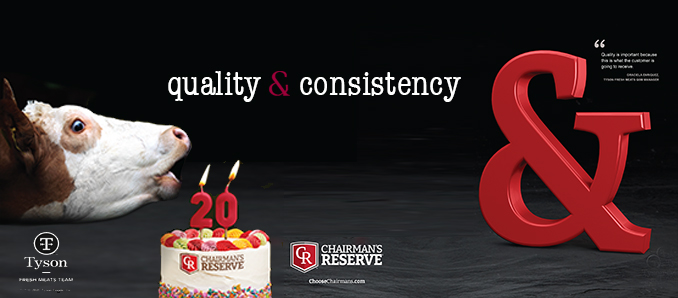By Nicholas Wyman, President, IWSI America
The U.S. hospitality sector, which includes restaurants, hotels, bars, catering, tourism, wellness, and entertainment, is a cornerstone of the American economy. It supports nearly 17 million jobs as of April 2025, according to the Bureau of Labor Statistics (BLS). Despite record consumer spending and a robust post-pandemic rebound, the industry continues to face a severe labor shortage and the highest turnover rates among major sectors.*
A Persistent Labor Crunch
Demand continues to outpace the supply of skilled workers. Annual turnover is now at 74%, nearly five times the national average. Replacing a single employee costs close to $10,000. These challenges affect hotels, restaurants, bars, wellness centers, and event venues, all of which are struggling to recruit and retain talent.
What’s Driving the Exodus?
Wages have jumped by almost a third since 2021, yet departures continue. Burnout, rising living costs, and better opportunities elsewhere are pushing workers out. Younger workers, who make up nearly two-thirds of the hospitality workforce, are especially motivated by:
- Flexible schedules
- Clear career progression, and
- A positive workplace culture.
Many employers are still catching up.
A Shift in Strategy: Invest in Internal Talent
The talent crisis in hospitality isn’t just about a lack of candidates; it’s about missed opportunities within our businesses. I want to highlight ‘emerging leaders’ already on staff. They’re the ones who step up during busy shifts or help onboard new hires. Too often, these employees leave simply because no one has shown them a clear path forward. I urge operators to rethink their approach: don’t just sell a job; rather, show a path towards a long-term, meaningful career. Today’s workforce, especially Gen Z employees, seeks more than pay. They want progression, purpose, and a workplace where their contributions matter.
Turn Everyday Roles into Career Pathways
Industry research confirms that hospitality businesses investing in internal development see better retention and stronger teams. Strategies include micro-promotions, mentorship, cross-training, and upskilling.
- Create micro-promotions: Shift leads, stock coordinators, and team mentors show staff there’s forward motion, even without a title change
- Conduct regular shift debriefs: Acknowledge those who lead under pressure, solve problems, or support teams
- Ask before they leave: Proactively ask, “What would help you grow?” or “What’s next for you?”
- Cross-train when business is quiet: Let staff build skills in different roles across the venue
- Recognize invisible skills: Initiative, empathy, and calm under pressure often indicate future leaders
- Use training buddies and event leads: These roles ease onboarding and create low-stakes leadership opportunities, and
- Emphasize human skills: Real-time problem-solving, emotional support, and mentoring others are human skills that technology can’t replace.
Gen Z and the New Hospitality Workforce
Gen Z workers are drawn to employers offering purpose, clear progression, and a sense of belonging. Hospitality teaches real-world skills that transfer across every industry: time management, problem-solving, teamwork, and resilience. These aren’t ‘soft skills’; rather, they’re essential skills, forged every shift. Reframing hospitality from ‘just a job’ to a career-launching platform is vital for the industry’s future.
Apprenticeships and Career Pathways
Apprenticeship programs are gaining traction to bridge skill gaps and foster loyalty. They combine on-the-job experience with training, transforming entry-level roles into career pathways. Developing internal talent shouldn’t be a luxury. I argue it’s the only sustainable way forward. Operators embracing this model aren’t just filling roles; they’re building capability and offering entry-level workers a future.
Innovative operators are looking beyond traditional apprenticeships in kitchen and service roles. Now, businesses are creating pathways in digital marketing and revenue management, teaching social media and pricing strategies that impact the bottom line. Event coordination apprenticeships cover corporate conferences and weddings, while wellness and sustainability roles combine customer service with specialized knowledge valued by environmentally conscious guests.
Progressive businesses are developing apprenticeships in hotel technology, data analytics, and supply chain management—teaching property systems, inventory control, and operational efficiency. My approach centres on recognizing existing talent: The ability to think on your feet is essential.
A housekeeper with attention to detail could apprentice in quality assurance, while a server with strong interpersonal skills might develop into a training coordinator. Expanding apprenticeships beyond conventional roles allows businesses to tap into diverse skill sets and offer meaningful career progression. To me the key is recognizing that every hospitality role, from data analysis to sustainability coordination, offers opportunities for professional development and career growth.
The Next Great Hire Is Already Here
To address the hospitality workforce crisis, the most effective approach may be to look inward. There’s no shortage of talent, only a shortage of investment in the people already here. By prioritizing internal development, career progression, and apprenticeship pathways, businesses can transform today’s staffing challenge into tomorrow’s leadership pipeline.
Sources:
https://oysterlink.com/spotlight/high-turnover-in-hospitality-2025/
https://www.bls.gov/iag/tgs/iag70.htm https://oysterlink.com/spotlight/high-turnover-in-hospitality-2025/
https://www.roostedhr.com/blog/hospitality-jobs-have-some-of-the-highest-turnover-rates
About Nicholas Wyman
Nicholas Wyman began his career as an award-winning chef, where he honed a unique blend of creativity and discipline. Transitioning from the culinary arts to the business world, Nick leveraged his leadership experience to become a globally recognized workforce practitioner. As the CEO of the Institute for Workplace Skills and Innovation Group (IWSI), he has been at the forefront of redefining career pathways, sparking a transformative shift in how the modern world views skills and success. Under his visionary leadership, IWSI has ignited more than 20,000 skills-based career paths, making a profound impact on both individuals and organizations worldwide. A leading authority on employment and talent development A leading authority on employment and talent development, Nick is the author of two influential books, including Job U: How to Find Wealth and Success by Developing the Skills Companies Actually Need, and is a respected contributor to Forbes, Fast Company, the MIT Press journals, and CNBC.Nickolas








